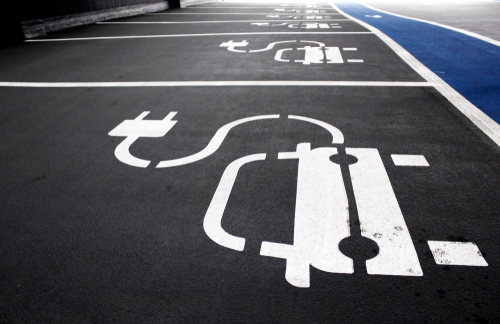Editor’s note: FM Perspectives are industry op-eds. The views expressed are the authors’ and do not necessarily reflect those of Facilities Management Advisor.
Recently, car rental powerhouse Hertz decided to dump about 20,000 electric vehicles (EVs) from its fleet of rental vehicles. This decision came only two short years after the company made a deal with Tesla to offer its vehicles—along with other EVs—for rent. While some call this a definitive sign that the EV revolution has cooled, taking a more nuanced look at Hertz’s decision could unveil more positive implications for the EV industry overall.

Implication for the EV Market
While Hertz’s decision is surprising, I don’t believe that its decision to sell 20,000 of its EVs will have a long-term impact on the EV industry. The EV rental model was ahead of its time, especially concerning the availability and reliability of EV charging stations in the U.S. “Range anxiety” still exists within the EV market. Until charging stations are widely available—and operational—many renters will not want to stop and be bothered to find a place to charge their rental vehicle. This “range anxiety” and the lack of available and operational chargers are large reasons why the public has not widely embraced EV use yet.
I’m hopeful that Hertz’s decision will prompt the installation of more EV chargers, not stall the progress of EV adoption overall.
Hertz Was Not the First
While Hertz’s decision to bring on EV rentals was notable, the company was not the first to offer this service. In 1997, industry pioneer and entrepreneur Terry O’Day founded EV-Rentals. O’Day hoped that people would fall in love with the idea of EVs if they had a chance to rent and drive them. Later, Budget Rental Cars attempted to introduce EVs to its fleet in an effort to promote sustainable transportation options and raise awareness about the environmental benefits of EVs. However, although Budget still offers EVs, the company requires that the cars be returned at least 70% charged, which brings the “range anxiety” back into focus.
It is good for a multibillion-dollar business to be viewed as sustainable and “green.” However, the effort will ultimately fail if the infrastructure is not in place to support the green initiatives.
Market Signals and the Trajectory of EV Adoption
While the Hertz decision is a disappointing setback for EV supporters, it is not likely to signal an overall decline in consumer sales of EVs. EV sales jumped 50% in 2023, showing people are still interested in sustainable driving options.
Individual events such as the Hertz decision to drop EV rentals may have a short-term impact on consumer sales, and there is certainly a risk that Hertz’s move could influence other large rental companies to follow suit. Right now, Enterprise and Alamo—along with Budget—still offer EV rentals. However, if they see that Hertz benefits from dropping EVs from its fleet, there is always the risk that those other companies will reconsider EV adoption.
However, if we look at the situation from a glass-half-full perspective, Hertz pulling its EV options could create opportunities for other companies to fill that gap in the market. Rental company SIXT is one of these companies. Although the rental company dropped Tesla from its fleet due to exorbitant repair costs, it is still aiming for plans to have 70% to 80% of its fleet be electric by 2030.
When large companies such as Hertz or manufacturers like Ford decide to scale back on their initial EV implementation plans, it can cause a ripple in the market. Many of these ripples are short-lived. The overall perception of the EV market can be driven by the media and politics. Some feel that EV adoption is being “shoved down our throats,” while others fully embrace a transition to EV use as part of their contribution toward a cleaner environment and better future.
As battery technology advances and improvements are made to the uptime and availability of charging stations, more people will embrace EVs’ economic advantages and sustainability.
I have been a part of the EV market in one capacity or another since 1995. In that time, I have seen the industry undergo many changes—much of it influenced by politics. Rather than public awareness and adoption, sector activity was driven by grants, mandates, legislations, bills, and sometimes even massive contentious settlements.
Today, there is a growing public awareness and acceptance that fueling our transportation on oil is not in line with today’s technological advancements. It is no longer a question of political affiliation; instead, it is an acceptance of where technology is taking us. It’s not a Red or Blue issue; it’s a Red, White, and Blue awareness that the fast-growing EV highway looks very bright indeed.

Rue Phillips is the co-founder and CEO of SkillFusion, a digital customer service platform for training, certification, and compliance of electric vehicle supply equipment (EVSE) electricians, technicians, and EV-ComTechs.
ALSO READ: 3 Ways Investing in EV Infrastructure Can Improve a Commercial Facility

